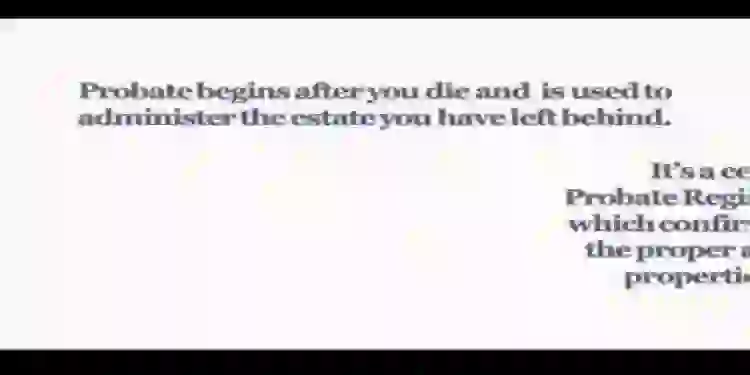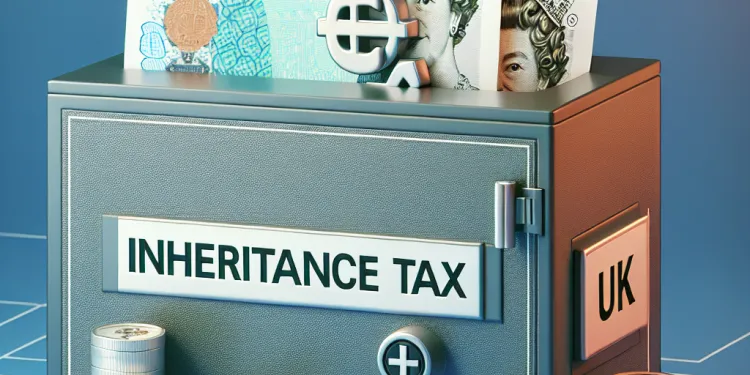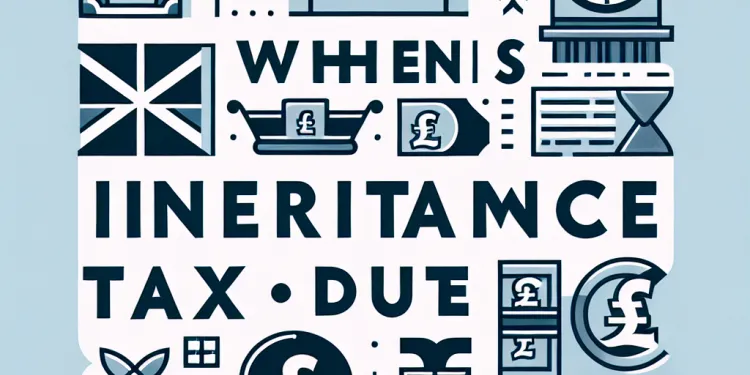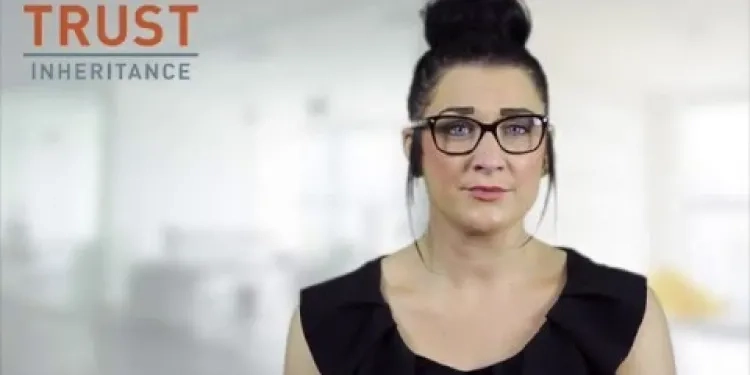Find Help
More Items From Ergsy search
-

Wills, Probate and Tax Planning in the UK
Relevance: 100%
-

Will and Probate Solicitor Bath
Relevance: 64%
-

Helen Starkie, Bath Solicitor for Wills and Probate Law
Relevance: 53%
-

How can I plan efficiently to mitigate inheritance tax?
Relevance: 43%
-

Do unpaid tax debts affect Inheritance Tax calculations?
Relevance: 42%
-

Chancellor Unveils Plans to Reform UK Tax System
Relevance: 42%
-

Are there any planned changes to tax bands for April 2026?
Relevance: 41%
-

How is Inheritance Tax (IHT) dealt with after death?
Relevance: 40%
-

What is inheritance tax in the UK?
Relevance: 36%
-

What taxes need to be paid from the deceased’s estate?
Relevance: 36%
-

How does inheritance tax apply to life insurance policies?
Relevance: 34%
-

Where can I find more detailed information on inheritance tax?
Relevance: 34%
-

Is there a plan to introduce new tax initiatives in April 2026?
Relevance: 33%
-

What is inheritance tax in the UK?
Relevance: 32%
-

What if the estate does not have enough assets to pay all tax debts?
Relevance: 31%
-

When is inheritance tax due to be paid?
Relevance: 31%
-

Can a robo-advisor help with pension planning?
Relevance: 30%
-

Who is responsible for paying the deceased’s tax debts?
Relevance: 30%
-

What is the role of independent financial advisors in pension planning?
Relevance: 30%
-

Can my tax refund be applied to my future tax obligations?
Relevance: 30%
-

Can an inheritance tax bill be challenged or appealed?
Relevance: 30%
-

How often should I review my pension plan?
Relevance: 30%
-

What is a Wealth Tax?
Relevance: 28%
-

How soon should I prepare for the 2026 tax changes?
Relevance: 28%
-

Would a wealth tax replace other taxes in the UK?
Relevance: 28%
-

What are HMRC Income Tax Changes in April 2026?
Relevance: 28%
-

Student Finance: Should I pay more? | Plan 1 & Plan 2 | SF Explained
Relevance: 28%
-

Could a wealth tax encourage tax avoidance?
Relevance: 28%
-

Planning for your funeral
Relevance: 28%
-

What is the Wealth Tax in the UK?
Relevance: 28%
-

How does inheritance tax affect non-UK domiciled individuals?
Relevance: 28%
-

What Happens to Tax Debt After Death? (UK Laws)
Relevance: 27%
-

What should business owners expect from income tax changes in 2026?
Relevance: 27%
-

Planned caesarean section
Relevance: 27%
-

Will the personal allowance be altered for the 2026 tax year?
Relevance: 27%
-

Would a wealth tax apply to foreign assets?
Relevance: 27%
-

What is the wealth tax in the UK?
Relevance: 27%
-

Does owning property abroad affect UK inheritance tax?
Relevance: 27%
-

Do I pay tax on the basic State Pension?
Relevance: 27%
-

How does a wealth tax differ from an income tax?
Relevance: 27%
Wills, Probate & Tax Planning in the UK
Understanding Wills
A Will is a legally binding document that sets out how your assets and estate are to be distributed upon your death. In the UK, it is crucial to have a valid and up-to-date Will to ensure that your wishes are honored. If you die without a Will, your estate will be subject to the rules of intestacy, meaning it will be distributed according to a fixed legal formula, potentially leaving out people or causes you care about. It's recommended to seek professional legal advice when drafting a Will to ensure it complies with UK laws and accurately reflects your intentions.
Probate Process
Probate is the legal process of administering the estate of a deceased person. This involves proving the validity of the Will, settling any outstanding debts, and distributing the remaining assets to the beneficiaries. In the UK, if the estate is worth more than £5,000, the executors named in the Will are required to apply for a Grant of Probate. This official document gives them the authority to deal with the deceased person’s property, money, and possessions. If there isn't a valid Will, a family member can apply for a Grant of Letters of Administration to settle the estate.
Importance of Tax Planning
Tax planning is a key aspect of managing your estate to ensure that your beneficiaries are not unduly burdened with taxes. In the UK, Inheritance Tax (IHT) is charged at 40% on estates valued above the nil-rate band, which is currently set at £325,000. Effective tax planning can help reduce the amount of IHT payable. Strategies may include making lifetime gifts, setting up trusts, and using available reliefs and exemptions such as the Residence Nil Rate Band (RNRB) if a home is passed on to direct descendants. Consulting with a tax advisor is advisable to navigate the complexities and make the best decisions for your financial legacy.
Conclusion
Planning for the future by creating a Will, understanding the probate process, and engaging in tax planning are essential steps to ensure your assets are distributed as you wish and to minimize the financial burden on your beneficiaries. Given the intricate legal and tax implications, seeking advice from professionals in the UK is highly recommended to make informed decisions and ensure your estate is managed effectively.
Wills, Probate & Tax Planning in the UK
Understanding Wills
A Will is a paper that says what happens to your things when you die. In the UK, having a Will is very important. It makes sure that what you want happens when you're gone. If you don't have a Will, the law will decide who gets your things. This could mean people or things you care about are left out. It's a good idea to talk to a lawyer to make sure your Will is correct and legal. Lawyers can help make sure it says what you want and follows the rules.
Probate Process
Probate is a process that happens after someone dies. It involves checking the Will, paying any money the person owed, and giving out what's left to the right people. In the UK, if what the person owned is worth more than £5,000, the person named in the Will has to get a special permission called a Grant of Probate. This paper allows them to take care of the dead person's things and money. If there's no Will, someone in the family can ask for a different paper called a Grant of Letters of Administration to do the same job.
Importance of Tax Planning
Tax planning means thinking about how to manage taxes when you pass things to others after you die. In the UK, if what you own is worth a lot, your family might have to pay Inheritance Tax at 40%. This tax only applies to anything over a certain amount, currently £325,000. To pay less tax, you can plan ahead. You might give some things as gifts before you die, make trusts, or use other special rules. Talking to a tax advisor can help you understand what to do, so you leave as much as possible to the people you care about.
Conclusion
Planning for the future is important. Making a Will, knowing about probate, and planning for taxes helps make sure your things go where you want them to. It also helps your family not have to pay too much extra money. The rules can be tricky, so it's a good idea to talk to professionals in the UK. They can help you make smart choices for your future plans.
Frequently Asked Questions
What is a will and why do I need one?
A will is a legal document that sets out how your assets should be distributed after your death. It ensures that your wishes are followed and can help minimise disputes among beneficiaries.
What happens if I die without a will in the UK?
If you die without a will, your estate will be subject to intestacy laws, which dictate how your assets will be distributed among your relatives. This may not reflect your personal wishes.
Can I write my own will?
Yes, you can write your own will, but it must meet certain legal requirements to be valid. It's often recommended to seek professional advice to ensure your will is legally binding.
What is probate?
Probate is the legal process of administering the estate of a deceased person, which includes validating the will (if there is one) and distributing the assets according to the will or intestacy laws.
How long does probate take in the UK?
The time required for probate can vary, but it typically takes between six months to a year from the time the probate application is submitted. Complex estates may take longer.
Do I need to pay inheritance tax?
Inheritance tax is due if the value of your estate exceeds the nil-rate band, which is currently £325,000. Assets above this threshold may be taxed at 40%.
Can I reduce the inheritance tax on my estate?
There are various ways to reduce or mitigate inheritance tax, such as gifting assets during your lifetime, using trusts, or leaving part of your estate to charity. Professional advice is recommended.
What is a lasting power of attorney?
A lasting power of attorney (LPA) is a legal document that allows you to appoint someone to make decisions on your behalf if you become unable to do so.
Can I change my will after it has been made?
Yes, you can change your will at any time, either by making a new will or by adding a codicil, which is an additional document that modifies your existing will.
What is the role of an executor?
An executor is responsible for administering your estate according to the terms of your will. This includes paying off debts, distributing assets, and handling taxes.
How can I ensure my will is legally valid?
For a will to be legally valid in the UK, it must be written, signed by you in the presence of two witnesses who are not beneficiaries, and signed by the witnesses.
What should I include in my will?
Your will should include details of your assets and how you want them distributed, names of your beneficiaries, the appointment of executors, and any specific wishes such as guardianship for children.
What is a trust and how does it work?
A trust is a legal arrangement where one or more persons (trustees) hold and manage assets for the benefit of others (beneficiaries). Trusts can be used for various purposes, including tax planning and protecting assets.
Do I need a solicitor to apply for probate?
You don't need a solicitor to apply for probate, but their expertise can be invaluable in ensuring the process is handled correctly, especially for complex estates.
What are some common mistakes to avoid when writing a will?
Common mistakes include not updating your will after major life changes, not signing the will correctly, failing to appoint a suitable executor, and not specifying what happens if a beneficiary dies before you.
What is a will and why do I need one?
A will is a paper that says who will get your things when you die.
It is important to have a will because it can help make sure your things go to the people you want.
Making a will can also make things less confusing for your family.
You might want to talk to a helper or use a computer tool that guides you step-by-step.
A will is a paper that tells people what you want to happen to your things after you die. It makes sure your wishes are respected and can help avoid arguments between your family and friends.
What happens if I die without saying who gets my things in the UK?
If you die and you haven't written down who should get your things, this is called dying "without a will." In the UK, there are special rules that decide who gets your money and belongings. This might not be what you wanted, so it’s a good idea to write a will if you can.
If you need help, you can talk to a lawyer. They can help you make a will. You can also use online tools to make writing a will easier.
If you die without saying who gets your things, the law will decide who gets them. The law might not do what you wanted.
Can I make my own will?
You can make your own will. A will is a paper that says who gets your things when you die.
Here are a few tips to help:
- Make a list of your things, like money, house, or special items.
- Think about who you want to give these things to.
- Write down your wishes clearly.
- You might want to ask for help from a grown-up or use a simple guide.
- Make sure you sign your will and have two people watch you sign it.
Tools like a simple online form can help you, or you can ask a trusted person to help you.
Yes, you can write your own will. But to make sure it counts, it has to follow certain rules. It’s a good idea to ask a lawyer for help to make sure your will is done right.
What is probate?
Probate is a legal process. It happens when someone dies. Probate makes sure their money and things go to the right people. It checks if there's a will, which is a special paper that says who gets what.
Tools that might help you understand:
- Pictures or drawing of the probate process.
- A simple video about probate.
Probate is what we do when someone dies to take care of what they owned. It helps us to check the will (if there is one) and share the things they owned as the will says. If there is no will, we use the law to decide who gets what.
How long does it take to do probate in the UK?
Probate is when people sort out someone’s money and things after they have died.
It can take a few months to do probate.
If it is difficult, it might take longer.
It helps to have all the important papers ready.
You can ask a friend or family to help. You can also ask a lawyer for help.
Probate is a process that happens when someone dies. It usually takes between six months to a year. If things are complicated, it might take more time.
Do I have to pay money when someone dies?
You might have to pay some money to the government when someone dies. This is called inheritance tax. If the money or things they leave you is more than £325,000, then you might have to pay extra money.
This means the extra money or things might be taxed. This means you pay 40% of the extra money to the government.
It's a good idea to talk to someone who knows a lot about money if you are not sure. You can also use a calculator online to help understand how much you might have to pay.
Can I pay less inheritance tax when I die?
If you want to pay less inheritance tax, here are some tips:
- Give gifts to family and friends while you are alive.
- Put your money into a trust.
- Write a will and plan who gets what.
- Ask a tax expert for help.
These steps can help make sure less money goes to tax.
There are ways to pay less inheritance tax.
Here are some ideas:
- Give your things to others while you are still alive.
- Use a trust. A trust is like a special box where your things go, and someone takes care of them for you.
- Leave some of your things to a charity.
It is a good idea to ask an expert for help.
You can also ask someone you trust to read this with you. They can help explain things. You can use a dictionary, too.
What is a lasting power of attorney?
A lasting power of attorney (LPA) lets you choose someone you trust to help you. This person can make decisions for you if you can't. An LPA helps with big decisions about money and health.
To make an LPA, it's good to talk to someone you trust. You might also want to use tools like videos or pictures to understand more.
A lasting power of attorney (LPA) is a special paper. It lets you choose someone to make choices for you if you can't make them yourself.
Can I change my will after I made it?
Yes, you can change your will. Your will is the paper that says what you want to happen after you die. If you want to change it, you must do it the right way.
If you want help, ask someone who knows about wills, like a lawyer. They can help you make changes the right way.
You can also ask a friend or family member to help you understand. They can read it with you and explain it if it’s hard. Using pictures or videos can help too.
You can change your will whenever you want. You can do this by writing a new will. Or, you can add something called a “codicil.” A codicil is a paper that changes your old will.
What does an executor do?
An executor is a person who helps with your money and things after you pass away. They make sure your wishes are followed. They pay any bills you owe, give your things to the people you chose, and take care of taxes.
How do I make sure my will is legal?
A will is a special paper that says who gets your things after you die.
In the UK, to make a will valid (or real), you need to do these things:
- Write it down on paper.
- Sign your name while two people watch you. These people are called witnesses. They cannot get anything from your will.
- The two witnesses need to sign the will too.
If you need help with this, you can talk to a family member, a friend, or a special helper like a lawyer. They can help you make sure everything is done right.
What should I put in my will?
Your will is like a letter that tells people what to do with your things after you die. It should say:
- What things you have, like money or a house.
- Who you want to give your things to. These people are called beneficiaries.
- Who you trust to help carry out your will. This person is called an executor.
- Any special wishes you have, like who will take care of your kids if they are young.
What is a trust and how does it work?
A trust is a way to keep and manage money or things for someone else. A person called a "trustee" looks after the money or things. They make sure it is used the right way. A person who gives the money or things is called a "settlor," and the person who gets it is called a "beneficiary."
Here is how a trust works:
- The settlor gives money or things to the trustee.
- The trustee takes care of it and follows rules set by the settlor.
- The beneficiary gets the money or things when the time is right.
Trusts keep things safe and make sure they are used the right way. If you find it hard to understand, you can ask someone to help you or use pictures to explain each step. You might also use a computer or tablet to watch videos about trusts.
A trust is a way to look after things like money or property for someone else. People called "trustees" take care of these things. They do it for other people, called "beneficiaries". Trusts can help with saving on taxes and keeping things safe.
Do I need a lawyer to apply for probate?
When someone dies, you might need to deal with their money and things. This is called probate.
Sometimes, you need a lawyer to help with probate. But not always.
Here’s how to know if you need a lawyer:
- If the person had lots of money or property, a lawyer can help.
- If there is a will and it's easy to understand, you might not need a lawyer.
- If the family is arguing about who gets what, a lawyer can help.
- If you feel unsure or the forms are too hard, a lawyer can help.
Tools that can help:
- Talk to family or friends for advice.
- Use simple guides online about probate.
- Look for lists or worksheets to help you stay organized.
You don't need a lawyer to apply for probate. But a lawyer can be very helpful. They can make sure everything is done right, especially if the estate is complicated.
What mistakes should you avoid when making a will?
People often make mistakes with their wills. Some mistakes are:
- Not changing your will after big life events, like getting married or having a baby.
- Not signing your will correctly. You need witnesses to see you sign it.
- Not choosing the right person to look after your will. This person is called an 'executor'.
- Not saying what should happen if someone who gets money in your will dies before you do.
Here's a tip: Get help from someone who knows about wills, like a lawyer, so you can avoid these mistakes.
Useful Links
- Ergsy carfully checks the information in the videos we provide here.
- Videos shown by Youtube after a video has completed, have NOT been reviewed by ERGSY.
- To view, click the arrow in centre of video.
- Most of the videos you find here will have subtitles and/or closed captions available.
- You may need to turn these on, and choose your preferred language.
- Go to the video you'd like to watch.
- If closed captions (CC) are available, settings will be visible on the bottom right of the video player.
- To turn on Captions, click settings .
- To turn off Captions, click settings again.
More Items From Ergsy search
-

Wills, Probate and Tax Planning in the UK
Relevance: 100%
-

Will and Probate Solicitor Bath
Relevance: 64%
-

Helen Starkie, Bath Solicitor for Wills and Probate Law
Relevance: 53%
-

How can I plan efficiently to mitigate inheritance tax?
Relevance: 43%
-

Do unpaid tax debts affect Inheritance Tax calculations?
Relevance: 42%
-

Chancellor Unveils Plans to Reform UK Tax System
Relevance: 42%
-

Are there any planned changes to tax bands for April 2026?
Relevance: 41%
-

How is Inheritance Tax (IHT) dealt with after death?
Relevance: 40%
-

What is inheritance tax in the UK?
Relevance: 36%
-

What taxes need to be paid from the deceased’s estate?
Relevance: 36%
-

How does inheritance tax apply to life insurance policies?
Relevance: 34%
-

Where can I find more detailed information on inheritance tax?
Relevance: 34%
-

Is there a plan to introduce new tax initiatives in April 2026?
Relevance: 33%
-

What is inheritance tax in the UK?
Relevance: 32%
-

What if the estate does not have enough assets to pay all tax debts?
Relevance: 31%
-

When is inheritance tax due to be paid?
Relevance: 31%
-

Can a robo-advisor help with pension planning?
Relevance: 30%
-

Who is responsible for paying the deceased’s tax debts?
Relevance: 30%
-

What is the role of independent financial advisors in pension planning?
Relevance: 30%
-

Can my tax refund be applied to my future tax obligations?
Relevance: 30%
-

Can an inheritance tax bill be challenged or appealed?
Relevance: 30%
-

How often should I review my pension plan?
Relevance: 30%
-

What is a Wealth Tax?
Relevance: 28%
-

How soon should I prepare for the 2026 tax changes?
Relevance: 28%
-

Would a wealth tax replace other taxes in the UK?
Relevance: 28%
-

What are HMRC Income Tax Changes in April 2026?
Relevance: 28%
-

Student Finance: Should I pay more? | Plan 1 & Plan 2 | SF Explained
Relevance: 28%
-

Could a wealth tax encourage tax avoidance?
Relevance: 28%
-

Planning for your funeral
Relevance: 28%
-

What is the Wealth Tax in the UK?
Relevance: 28%
-

How does inheritance tax affect non-UK domiciled individuals?
Relevance: 28%
-

What Happens to Tax Debt After Death? (UK Laws)
Relevance: 27%
-

What should business owners expect from income tax changes in 2026?
Relevance: 27%
-

Planned caesarean section
Relevance: 27%
-

Will the personal allowance be altered for the 2026 tax year?
Relevance: 27%
-

Would a wealth tax apply to foreign assets?
Relevance: 27%
-

What is the wealth tax in the UK?
Relevance: 27%
-

Does owning property abroad affect UK inheritance tax?
Relevance: 27%
-

Do I pay tax on the basic State Pension?
Relevance: 27%
-

How does a wealth tax differ from an income tax?
Relevance: 27%


